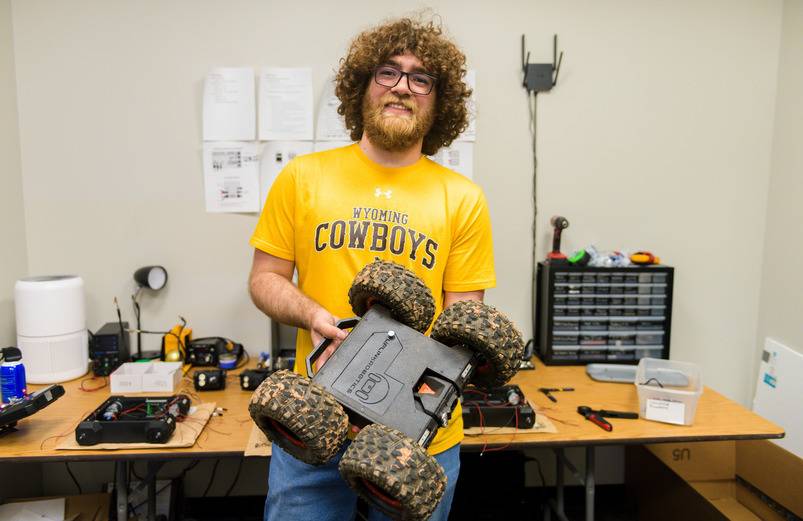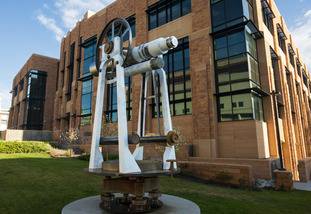Undergraduate Resources
QuickStart BS/MS Program
The combined BS/MS program enables especially well-qualified students to be admitted to the MS program during the junior year, allowing a simultaneous pursuit of the BS and MS degrees. BS/MS students may have up to six credit hours count toward both the undergraduate and graduate requirements to reduce the period of study.
Students enrolled in this program gain the advantage of a reduced course workload so that they may devote more time to investigation, thus enhancing the quality of research products and expediting degree completion.
Additonal Resources for Students
Find more helpful information about our policies here!
Electives
- Current Math Science Electives (PDF)
- Current Computer Engineering Electives (PDF)
- Current Electrical Engineering Technical Electives (PDF)
- Current COSC Science Electives List (PDF)
- Current Electrical and Computer Engineering ES Electives (PDF)
- Electrical Engineering Concurrent Major or for a minor (PDF)
- Computer Engineering Concurrent Major or for a minor (PDF)
Careers in EECS
The faculty of the Department of Electrical Engineering and Computer Science endeavor to train the next generation of top-quality engineers, researchers, and scientests. With a combination of successful, funded research and top-level industrial experience, EECS professors bridge the gap between theory and practice, creating an environment in which students can develop the requisite skills demanded by the best employers.
Research Opportunities
With any of our degrees, take part in cutting-edge research with our faculty members. You'll gain valuable experience and contribute to the future of the industry.
About our Programs
Electrical Engineering
The electrical engineering program offers a strong foundation in core engineering principles while allowing students to specialize in areas like circuits, communications, robotics and energy systems. With extensive lab work and a year-long senior design project, students gain hands-on experience applying their knowledge to real-world challenges.
ELECTRICAL ENGINEERING (BIOENGINEERING OPTION)
This area focuses on applying electrical engineering to environmental science, wildlife research, biology and medicine, preparing students for roles in government, industry and medical settings. It’s also a strong pathway for careers in biomedical instrumentation, environmental monitoring, wildlife telemetry and even preparation for medical or dental school.
Computer Engineering
The computer engineering program blends electrical engineering and computer science, giving students a strong foundation in both hardware and software. With hands-on lab experience in digital systems, microprocessors, embedded devices and computer networks, students learn to design and integrate the technologies that power modern computing systems.
Computer Science
The B.S. in Computer Science equips students with computational problem-solving skills and prepares them for careers across every industry. With foundations in software systems, data and IT—and optional concentrations in Business, Big Data or International Engineering—students gain the versatile expertise needed to innovate in a world driven by technology.
EECS Minors
EECS minors provide foundational and specialized knowledge in computer science and electrical engineering, complementing various majors across the university. These programs equip students with critical technical skills and analytical thinking essential for today's technology-driven world.

Degree Plans
Our sample four-year degree plans provide a clear roadmap for undergraduate students in each of our EECS programs, outlining recommended courses semester by semester. These plans help students navigate their academic journey, ensuring they meet all requirements while building a strong foundation in their chosen specialization.




